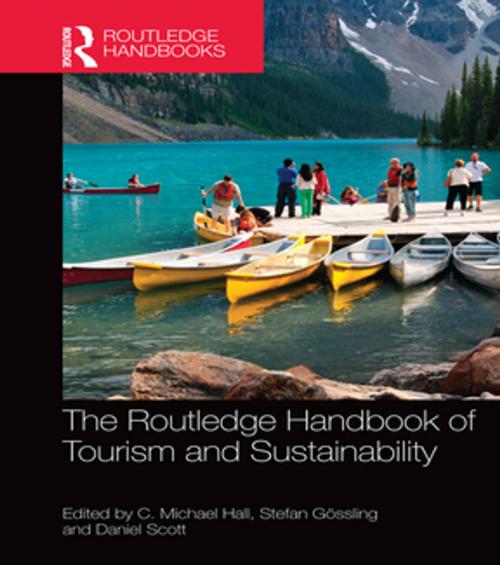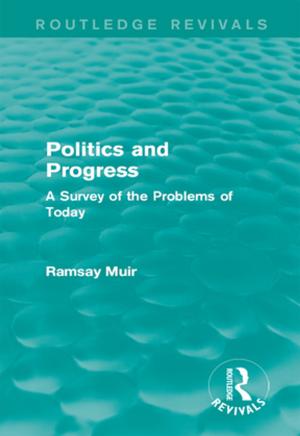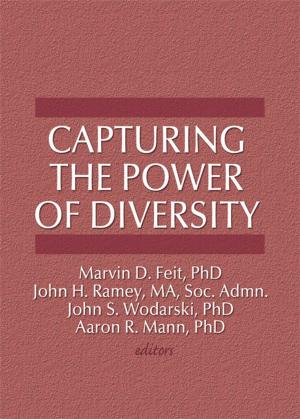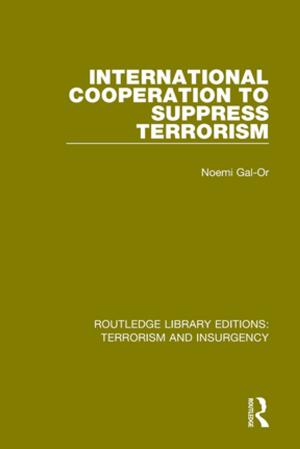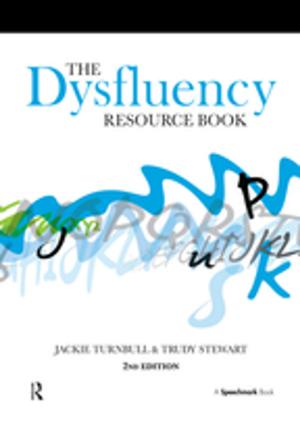The Routledge Handbook of Tourism and Sustainability
Business & Finance, Industries & Professions, Hospitality, Tourism & Travel, Nonfiction, Travel| Author: | ISBN: | 9781135099138 | |
| Publisher: | Taylor and Francis | Publication: | February 11, 2015 |
| Imprint: | Routledge | Language: | English |
| Author: | |
| ISBN: | 9781135099138 |
| Publisher: | Taylor and Francis |
| Publication: | February 11, 2015 |
| Imprint: | Routledge |
| Language: | English |
Routledge Handbook of Tourism and Sustainability from C. Michael Hall, Stefan Gössling, Daniel Scott
is one of the winners of the ITB BookAwards 2016 in the category Specialist tourism literature!
Sustainability remains one of the major issues in tourism today. Concerns over climate and environmental change, the fallout from the global economic and financial crisis, and the seeming failure to meeting UN Millennium development goals have only reinforced the need for more sustainable approaches to tourism, however they be defined. Given the centrality of sustainability in tourism curricula, policies, research and practice it is therefore appropriate to prepare a state of the art handbook on the relationship between tourism and sustainability.
This timely Handbook of Tourism and Sustainability is developed from specifically commissioned original contributions from recognised authors in the field, providing a systematic guide to the current state of knowledge on this area. It is interdisciplinary in coverage and international in scope through its authorship and content. The volume commences with an assessment of tourism’s global environmental, e.g. climate, emissions, energy use, biodiversity, water use, land use, and socio-economic effects, e.g. economic impacts, employment and livelihoods, culture. This then provides the context for sections outlining the main theoretical frameworks and constructs that inform tourism and sustainability, management tools and approaches, and the approaches used in different tourism and travel industry sectors. The book concludes by examining emerging and future concerns in tourism and sustainability such as peak-oil, post-carbon tourism, green economy and transition tourism.
This is essential reading for students, researches and academics interested in the possibilities of sustainable forms of tourism and tourism’s contribution to sustainable development. Its assessment of tourism’s global impact along with its overviews of sectoral and management approaches will provide a benchmark by which the sustainability of tourism will be measured for years to come.
Routledge Handbook of Tourism and Sustainability from C. Michael Hall, Stefan Gössling, Daniel Scott
is one of the winners of the ITB BookAwards 2016 in the category Specialist tourism literature!
Sustainability remains one of the major issues in tourism today. Concerns over climate and environmental change, the fallout from the global economic and financial crisis, and the seeming failure to meeting UN Millennium development goals have only reinforced the need for more sustainable approaches to tourism, however they be defined. Given the centrality of sustainability in tourism curricula, policies, research and practice it is therefore appropriate to prepare a state of the art handbook on the relationship between tourism and sustainability.
This timely Handbook of Tourism and Sustainability is developed from specifically commissioned original contributions from recognised authors in the field, providing a systematic guide to the current state of knowledge on this area. It is interdisciplinary in coverage and international in scope through its authorship and content. The volume commences with an assessment of tourism’s global environmental, e.g. climate, emissions, energy use, biodiversity, water use, land use, and socio-economic effects, e.g. economic impacts, employment and livelihoods, culture. This then provides the context for sections outlining the main theoretical frameworks and constructs that inform tourism and sustainability, management tools and approaches, and the approaches used in different tourism and travel industry sectors. The book concludes by examining emerging and future concerns in tourism and sustainability such as peak-oil, post-carbon tourism, green economy and transition tourism.
This is essential reading for students, researches and academics interested in the possibilities of sustainable forms of tourism and tourism’s contribution to sustainable development. Its assessment of tourism’s global impact along with its overviews of sectoral and management approaches will provide a benchmark by which the sustainability of tourism will be measured for years to come.
